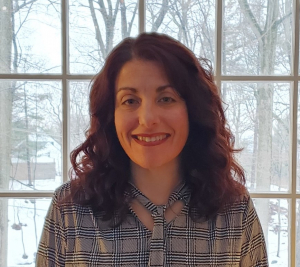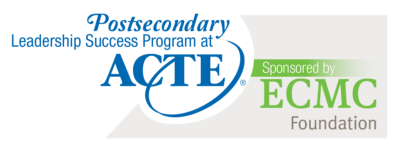 Meet Darlene O’Rourke, Perkins grant director and officer at Queensborough Community College. Her Techniques interview appears as part of a digital-exclusive spotlight series on fellows in the Postsecondary Leadership Success Program at ACTE – Sponsored by ECMC Foundation.
Meet Darlene O’Rourke, Perkins grant director and officer at Queensborough Community College. Her Techniques interview appears as part of a digital-exclusive spotlight series on fellows in the Postsecondary Leadership Success Program at ACTE – Sponsored by ECMC Foundation.
What leadership skills do you hope to develop as part of the Postsecondary CTE Fellowship?
The leadership skills that I hope to develop include team building, strategic thinking and communication. Currently, I supervise a large team, some of whom I have worked with for many years. Others are new. This was highly challenging in remote and hybrid environments, and with the added stress of so much uncertainty. I spend a lot of time communicating with my team about their comfort levels with regard to COVID-19, how they are managing their workloads, and what skills they would like to develop in the near term. It is my hope that, as I continue to develop my own skills, I will be able to steer the team as changes come our way. I hope that they feel supported, listened to and valued.
In what ways have you innovated to engage students >amp; inspire colleagues in CTE through the COVID-19 pandemic?
CTE programs can provide equitable access by offering courses and programs on a flexible basis: online, hybrid and on-campus. CTE can also work to ensure that student services offer flexible supports so that all may benefit. Further, ongoing professional development offers opportunities for CTE faculty and staff to enhance teaching and serving students with an equity focus.
Our education systems face many challenges in 2022. Please discuss the steps CTE can take to improve equitable access to high-quality CTE programs of study.
I believe that I helped inspire my CTE colleagues throughout the pandemic by simply not giving up hope. And after listening to faculty and students describe challenges they faced, I tried to develop solutions. For example, students in our Engineering Technology programs often struggle with one course — even when they are on campus. This course causes students to drop out of the program and out of the college at an alarming rate. So, my team and I designed a peer tutoring program that was fully online and open to anyone enrolled in that challenging course.
Learn more about the Postsecondary CTE Fellowship.
Please also meet:
- Tiffanie Rosier, STEM education coordinator at Northern Virginia Community College
- Tachaka Hollins, assistant vice chancellor for academic affairs at the Tennessee Board of Regents
- Tracey D. Cooper, executive director of nursing at Temple College
- Bernie Phelps, director of Perkins, Perkins Rural Reserve and dual enrollment at Montana Technological University, Highlands College
- Vickie Thomas, director of the Center for Workforce and Community Development at Eastern New Mexico University – Roswell
- Moira Lafayette, dean of health sciences and public safety at Blackhawk Technical College
- Brad Kinsinger, director of the Global Agriculture Learning Center at Hawkeye Community College
- Eric Sewell, director of technical education at Southern Union State Community College
- C.J. Wurster, district director at Maricopa County Community College District
- Katie Vincent, director of workforce partnerships at Owensboro Community and Technical College
- Dr. Xue Xing, assistant professor of teaching and learning at University of Nevada – Las Vegas
- Aleksander Marthinussen, program manager with NOVA SySTEMic at Northern Virginia Community College
- Dan Adams, former CTE administrator and current stay-at-home dad
- Martha Payán-Hernández, director of CTE at Fullerton College
- Ashlee Spannagel, dean of CTE and workforce development at Southeastern Community College
- Shelsi Barber-Carter, CTE coordinator at Baton Rouge Community College







